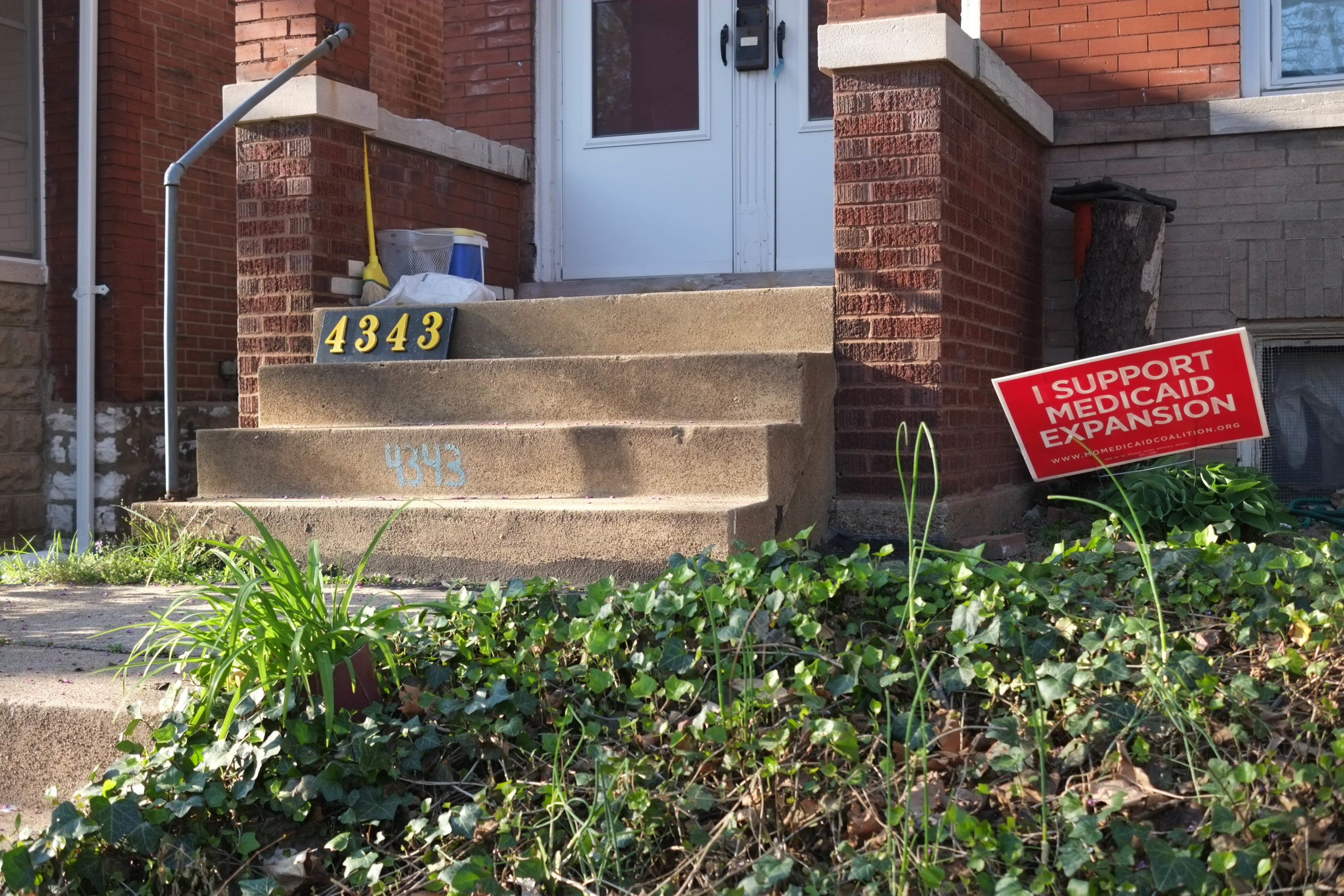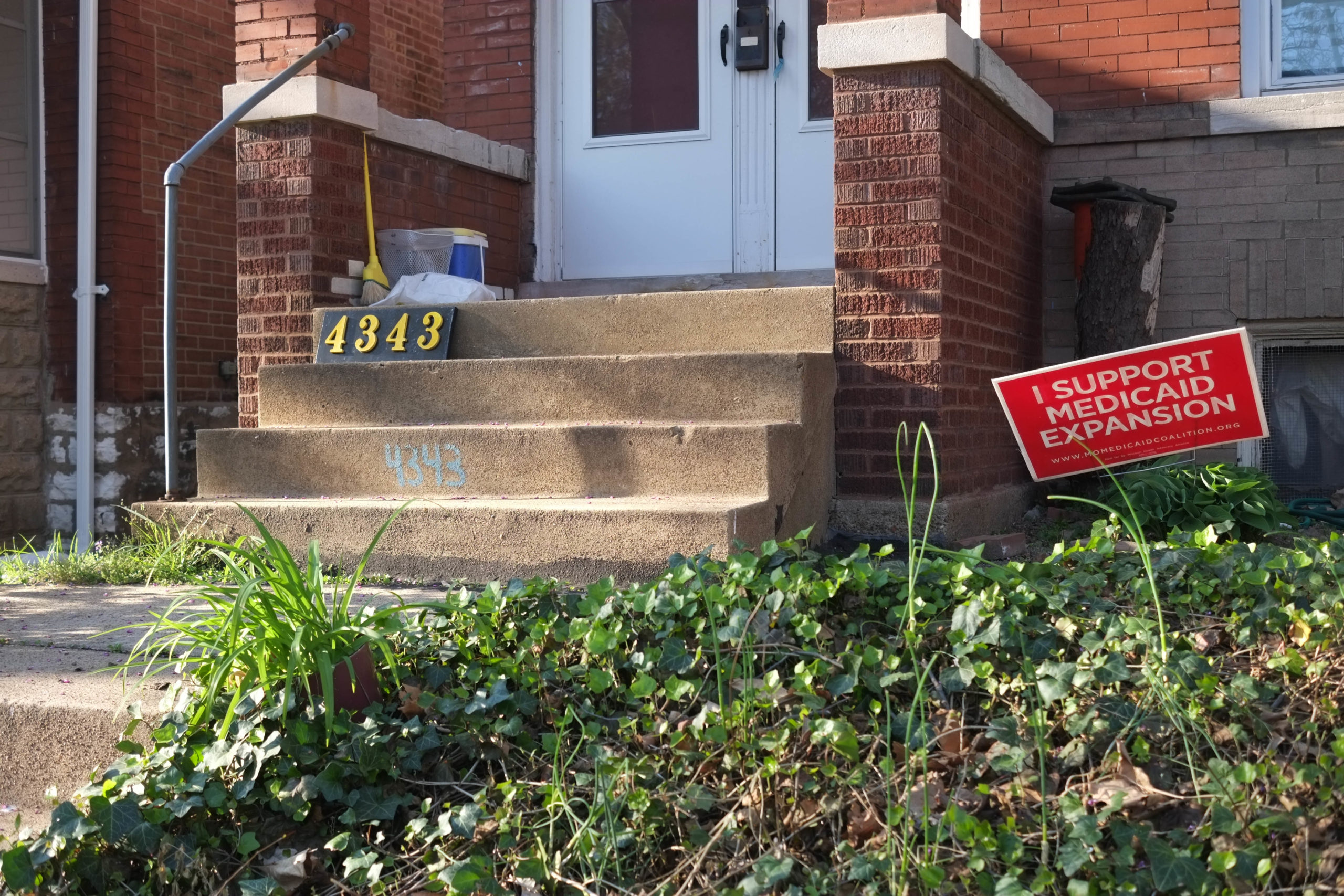Missouri Voters Could Expand Medicaid and Curb the Overdose Crisis
A referendum to expand Medicaid may be a turning point for a state with some of the worst health outcomes related to substance use.
Zachary A. Siegel | July 16, 2020


This article originally appeared on The Appeal, which hosted The Political Report project.
A referendum to expand Medicaid may be a turning point for a state with some of the worst health outcomes related to substance use.
Update (Aug. 4): Amendment 2, the initiative to expand Medicaid, has prevailed.
The opioid crisis has taken a particularly grim toll in Missouri, especially for communities of color. Two years ago, Missouri saw a 16 percent spike in fatal overdoses while the national average trended downward, and the state also has the third highest overdose rate among Black people.
On Aug. 4, Missouri voters will decide whether to expand Medicaid in a ballot initiative. If Amendment 2 passes, it would overhaul Missouri’s approach to addiction by steering more resources toward treatment programs that can counter criminalization. The expansion would also unlock billions in federal funding for health coverage and hospitals and provide coverage to an estimated 230,000 low-income adults and 40,000 children.
In recent years, voters in a handful of red states have expanded Medicaid through ballot initiatives, overriding conservative officials who have refused to take advantage of the federal Affordable Care Act to extend health insurance to millions of residents. Last month, Oklahoma became the latest to join this trend when voters approved a referendum by 1 percentage point.
The stakes are similar across the board: Economic and racial disparities, coupled with a crisis in rural healthcare, make Medicaid expansion a life and death issue in every state that hasn’t grown the program. Now, nearly 600,000 people in Missouri have filed for unemployment insurance due to the coronavirus pandemic, which means the number of people who would benefit from Medicaid expansion could be even higher than previously thought, with outsized ramifications for anyone who would like to access programs for substance use.
The spread of illicitly manufactured fentanyl, a potent opioid, has hit Black communities in the postindustrial city of St. Louis especially hard. Last year, opioid-related deaths among Black men in St. Louis and St. Louis County increased by 17 percent, even though they dropped by 8 percent in that area overall, according to preliminary data released this week by the Centers for Disease Control and Prevention.
“In Missouri, we have deaths of despair,” Timothy McBride, a health economist at Washington University in St. Louis, told The Appeal: Political Report. “We have rises in deaths from alcohol, drugs, and suicide—it’s not a pretty picture, and it’s not getting any better.”
—
Robert Riley II knows firsthand how Medicaid expansion could make a difference for people struggling with drug use. He spent time in prison on drug-related charges before co-founding the nonprofit Missouri Network for Opiate Reform and Recovery, otherwise known as the MoNetwork, in 2012.
“My incarceration and substance use experience are my greatest assets today,” Riley told the Political Report. “It allows me to provide empathy and guidance on staying safe to someone actively using, but most of all, I view the person suffering as a human being. And that humanity is what I feel is missing in debates about healthcare, and that’s because of stigma in America.”
Staff at the MoNetwork drive an old ambulance around St. Louis, distributing overdose-reversal kits, sterile syringes, and other supplies to people who use drugs and are unstably housed. Since the pandemic, they’ve added hand sanitizer, gloves, and masks among the supplies they give away for free. Riley and the MoNetwork have created an oasis of compassion and non-judgement for the communities they serve.
In addition to supplying tools to prevent overdose and exposure to HIV and hepatitis C, the MoNetwork also refers people to treatment and recovery housing. But the Covid-19 pandemic has strained budgets, limited the availability of treatment slots, and, out of precaution, some facilities stopped admitting new patients, leaving many without the care they need.
Organizations like MoNetwork can only provide so much support with donations and charity funding. Without a well-funded safety net, they’re left putting Band-Aids on bullet wounds.
“We know that within Missouri’s safety net substance use treatment programs, about 70 percent of people who present for treatment are completely uninsured,” Rachel Winograd, associate research professor at the University of Missouri-St. Louis, told the Political Report. “Having a larger client population that has any type of insurance coverage, including Medicaid, allows programs to help more people.” Winograd said expanding Medicaid would ultimately reduce the number of uninsured people seeking help.
States that expanded Medicaid saw admissions for addiction treatment increase by 113 percent, according to a 2017 study in the Journal of Health Economics. The same study found admissions for medication treatments like methadone and buprenorphine increased by 105 percent. Both medications are considered “the gold standard” for treating opioid addiction and have shown to significantly reduce the risk of fatal overdose. A January 2020 study in the Journal of the American Medical Association found fewer overdose deaths from heroin and illicit fentanyl in states that expanded Medicaid compared to those that did not.
“Our results suggest that Medicaid expansion might have prevented between 1,678 to 8,132 overdose deaths in the 2015 to 2017 period in the 32 states that expanded Medicaid,” Nicole Kravitz-Wirtz, the lead author of the 2020 JAMA study, told the Political Report.
Medicaid expansion could also prevent incarceration. A high percentage of people incarcerated have a substance use disorder diagnosis and could benefit from treatment instead of going to jail.
“If we treat substance use instead of punish people, we’ll see the number of people flowing through our criminal justice system drop. Preventive measures and treatment work better than incarceration, and it saves the state money,” Riley said.
Research cited by McBride found the same trend in other expansion states like Louisiana and Montana, which saw significant cost savings related to behavioral health and the criminal justice system.
“At the end of the day, it comes down to stigma,” Riley said. “We can talk about budgets and cost savings, but until more people have healthcare, better access to treatment, and are treated with dignity, it’ll keep being a struggle to save lives.”
—
The push to expand Missouri’s public insurance through a ballot initiative is supported by groups like The Fairness Project, a nonprofit that successfully spearheaded similar campaigns in several other states. Jonathan Schleifer, executive director of The Fairness Project, said expanding Medicaid isn’t just about healthcare.
“It’s also an economic justice issue by removing one of the greatest stressors”—the cost of healthcare—“in a family’s life.” He added, “The pandemic has exposed America’s invisible workers now as ‘essential workers,’ and we’re trying to help them with Medicaid expansion.”
At the moment, Missouri has some of the strictest eligibility criteria for Medicaid in the country. Single men, single women, and married couples are not eligible regardless of their income. To be eligible for Medicaid in Missouri, one must be disabled and not working, or be a parent and earn a yearly income below 20 percent of the poverty line, which for a family of three is a paltry $4,000.
Expanding Medicaid would drastically change who is eligible for coverage. With Amendment 2, adults ages 19 to 64 whose income is at or below 138 percent of the poverty level—which is $29,973 for a family of three—would qualify.
McBride calls the 190,000 adults who are currently left out of Medicaid in Missouri the “gap population.” He says they are working but are not offered employee health insurance and make too little to qualify for a plan from the federal Healthcare Marketplace.
“Most of the uninsured are low-income people who have low wage jobs,” McBride, told the Political Report. “If you’re making $12,000 a year, one medical bill could kill you. One visit to the ER for $500, they can’t pay it. One drug they have to pay for is impossible.”
Like in other states, people in Missouri are more likely to be uninsured if they live in rural areas, which is one of the main drivers behind rural hospitals shutting down across the state.
“Many of our rural hospitals are hanging on by a thread,” Ryan Barker, the vice president of strategic initiatives at the Missouri Foundation for Health, told the Political Report. “We’ve lost 10 rural hospitals in the last six or seven years … and a lot of that is because they see a higher percentage of uninsured patients.” He added, “Hospitals are not only important access points for residents in rural Missouri, but are often the largest employers in rural areas. If you lose the hospitals, you also lose a lot of jobs.”
Roughly 45 percent of Missouri’s hospitals are located in rural areas. A study published in 2018 found that hospitals in states that expanded Medicaid were more than six times less likely to close than hospitals in non-expansion states. The effect of Medicaid expansion on hospitals was especially strong in more rural areas, where federal funding gave rural hospitals a stronger financial footing.
If Missourians vote to expand Medicaid to low-income and working people, it would become the sixth state where voters bypass Republican leaders through the ballot to expand public health coverage, after Maine in 2017, Idaho, Nebraska, and Utah in 2018, and Oklahoma last month.
A “yes” vote for Amendment 2 would write Medicaid expansion into Missouri’s constitution, limiting the possibility for Republican leaders to block implementation or add stricter eligibility burdens like work requirements.
In 2017, voters in Maine, another state hit hard by overdose deaths, approved Medicaid expansion, but then-Governor Paul LePage refused to implement the program. The expansion wasn’t enacted until January 2019, after LePage lost his re-election bid to Janet Mills, a Democrat, who ordered the results of the referendum to stand. Mills cited the urgency of the opioid crisis in Maine and a lack of treatment capacity as some of the primary reasons to expand Medicaid.
“Americans in even the reddest of states want healthcare, and they’re willing to put it in their constitution to protect it from political meddling,” Schleifer told the Political Report. “That’s why we put expansion on the ballot for the people to decide. We’re talking about life and death differences in expansion versus non-expansion states.”


